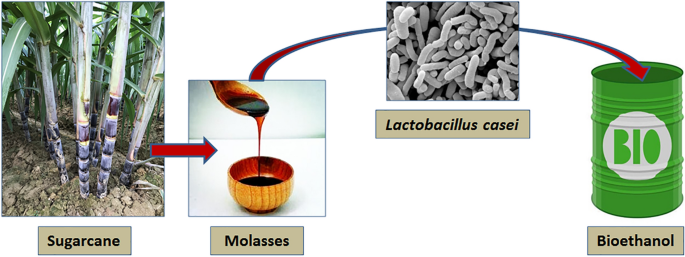Sugarcane Product: A Key Ingredient in Green Alternatives
Lasting Sugarcane Products: From Sweeteners to Eco-Friendly Item
The potential of lasting sugarcane products expands beyond typical sweeteners to incorporate a variety of eco-friendly items, presenting an engaging case for their combination into contemporary customer practices. As the globe grapples with pressing environmental concerns, sugarcane emerges as a flexible source capable of resolving both dietary requirements and sustainability objectives.
Summary of Sugarcane Sustainability
As the need for environmentally friendly items grows, understanding sugarcane sustainability ends up being significantly essential. Sugarcane, a flexible plant, is cultivated mostly in exotic and subtropical regions, and its sustainability is critical for both environmental health and wellness and financial viability. Sustainable sugarcane farming methods concentrate on reducing environmental influence while making best use of productivity and earnings.
Secret facets of sugarcane sustainability consist of efficient land use, decreased chemical input, and enhanced water monitoring. Practices such as plant turning, incorporated parasite management, and organic fertilization add to soil health and wellness and biodiversity. Furthermore, innovative technologies, such as precision agriculture, assistance enhance source usage and minimize waste.
In addition, sugarcane is a renewable source, with byproducts that can be made use of in numerous sectors, from biofuels to biodegradable plastics, thereby reducing reliance on fossil gas and lessening carbon impacts. Qualifications like the Bonsucro standard urge lasting methods across the supply chain, promoting transparency and accountability.

Sugarcane-Based Sugar
Making use of sugarcane as a main source, sugarcane-based sugar have actually acquired prominence as all-natural options to refined sugars and artificial sugar (sugarcane product). These sweeteners, derived from the removal and processing of sugarcane juice, supply a variety of products that provide to diverse customer preferences, consisting of natural and minimally processed options
Amongst the most remarkable sugarcane-based sweeteners are raw walking cane sugar, panela, and molasses. Raw walking stick sugar retains even more of the natural tastes and nutrients found in sugarcane, making it a preferred choice for health-conscious customers. Panela, a traditional Latin American sugar, is produced by vaporizing sugarcane juice, preserving its natural minerals and vitamins. Molasses, a result of sugar extraction, is abundant in antioxidants and necessary nutrients, functioning as a nourishing sweetening agent in different cooking applications.
The growing need for sugarcane-based sugar is driven by enhancing understanding of wellness and sustainability issues linked with conventional sweeteners. By picking sugarcane-derived items, consumers not only sustain lasting farming practices but likewise add to a much healthier lifestyle, aligning their dietary options with their ecological worths.
Biodegradable Packaging Solutions
Becoming a feasible choice to standard plastics, biodegradable packaging solutions originated from sugarcane are transforming the packaging market. These ingenious materials supply an eco pleasant alternative that resolves the expanding problems over plastic air pollution. Making use of the all-natural sugars located in sugarcane, makers are creating different types of naturally degradable packaging, including films, containers, and wraps that decompose extra swiftly than typical plastics.
The key advantages of sugarcane-based packaging lie in its eco-friendly sourcing and its capability to break down into safe results. Unlike fossil fuel-derived plastics, which can continue the atmosphere for hundreds of years, sugarcane packaging typically decomposes within a couple of months under appropriate conditions. This reduction in waste not just alleviates landfill overflow but additionally reduces the carbon footprint connected with product packaging materials.
Moreover, sugarcane-derived product packaging preserves durable efficiency qualities, offering equivalent toughness and performance to conventional alternatives. As companies and customers progressively prioritize sustainability, the adoption of biodegradable product packaging options stands for a significant action towards a circular economic climate, where materials are recycled and regenerated as opposed to disposed of. This shift not just enhances brand name image yet also adds to a more lasting future for the planet.
Eco-Friendly Textiles and Fabrics
Green textiles and textiles are gaining grip in the style and home goods markets as customers progressively require sustainable options to typical materials. Among the notable choices are textiles derived from sugarcane, which provide an eco responsible option to artificial fibers. These fabrics are produced with a procedure that makes use of the renewable energies discovered in sugarcane, significantly decreasing dependence on petroleum-based products.

As the market for sustainable fabrics expands, customers can look onward to ingenious styles that combine design with eco-friendly obligation. Ultimately, eco-friendly fabrics and textiles represent a significant action toward reducing the style market's environmental impact while catering this post to the expanding need for responsible customer options.
Innovations in Lasting Farming
Revolutionizing agricultural techniques, innovations in sustainable farming are changing the way crops are expanded and taken care of. These developments concentrate on decreasing environmental effect while maximizing effectiveness and efficiency.

In addition, agroecology, which integrates ecological useful link principles into farming, promotes biodiversity and dirt wellness. Practices such as plant turning, cover chopping, and intercropping foster resistant communities that can endure bugs and climate variations - sugarcane product. In addition, the use of natural plant foods and biopesticides adds to much healthier dirts and ecological communities

Together, these innovations are not just improving the agricultural landscape but additionally adding to a much more sustainable future for sugarcane and various other crops, aligning farming techniques with environmental stewardship.
Conclusion
Lasting sugarcane products stand for a significant development in green alternatives, extending from natural sweeteners to eco-friendly goods. As customer choices increasingly lean towards lasting alternatives, the flexibility of sugarcane as an eco-friendly source becomes progressively relevant.
The capacity of lasting sugarcane items expands beyond traditional sweeteners to incorporate a range of green goods, presenting a compelling situation for their assimilation right into modern consumer practices. Sustainable sugarcane farming methods concentrate on decreasing eco-friendly impact while maximizing productivity and earnings.
Lasting sugarcane items stand for a substantial innovation in eco-friendly alternatives, spanning from natural sugar to helpful hints eco-friendly items. The farming of sugarcane via lasting techniques not just boosts ecological health and wellness however likewise contributes to economic practicality. As consumer preferences significantly lean in the direction of lasting alternatives, the adaptability of sugarcane as a sustainable resource becomes increasingly pertinent.